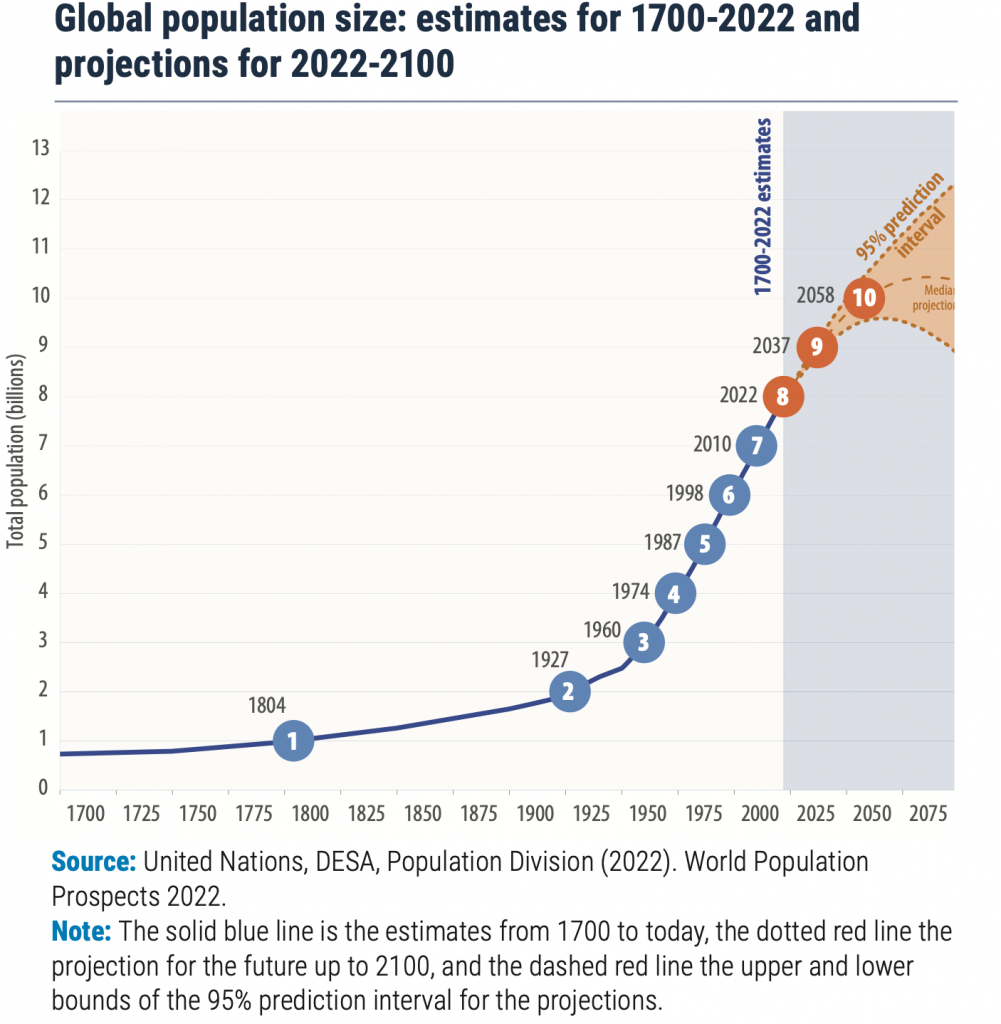
It is Time for Environmentalists to Stop Blaming ‘Overpopulation’ – Centre for International Policy Studies
Like a zombie, the argument that the global population must be urgently reduced to address the global environmental crisis keeps popping up – no matter how often the argument is put to rest. Take a speech at COP 27 by John Vidal (former environment editor at The Guardian), which made an impassioned plea on behalf of the overpopulationists to put the issue back on the agenda in the name of climate action.
In 2022, conservation scientists argued in the journal Biological Conservation that colleagues in the field should “advocate for smaller populations” to protect global biodiversity. And recently, an acclaimed history of science professor Naomi Oreskes argued that “we ought to have a plan for slowing the destructive surge in human population” to protect the world’s biodiversity. A barrage of criticisms emerged, pointing to the dangerous implications and flawed logic. We join some of these critics here by outlining five main reasons why it’s time for environmentalists to stop focusing on overpopulation.
Those who make the overpopulation argument should be aware of the racist history of the argument.
First, the countries experiencing the highest population growth rates tend to have an infinitesimally small impact on the environment. For example, by rough estimation, the ten countries with the highest population growth rates in the world – Syria, Niger, Equatorial Guinea, Angola, Democratic Republic, Burundi, Uganda, Mali, Chad, and Tanzania – collectively emit less than 0.2% of global CO2 emissions! This poses a logical conundrum for overpopulationists: Who do you target for population control? How could one possibly claim with a straight face to these impoverished (and in some cases war-torn) countries that they need to reduce their populations for the sake of the planet when it is rich industrialized countries responsible for the overwhelming share of climate change?
This is closely tied in with the second problem – the overpopulation argument blames all humans equally for the problematic behaviour of a very small minority of extremely wealthy people. The environmental footprint of a human being varies astronomically from one individual to the next. It is well known that the world’s wealthiest individuals draw orders of magnitude more upon the Earth’s resources, not only to sustain their lavish lifestyles but also because of their carbon-intensive capital investments. To put it crudely, you can have a much more significant impact on the environment by controlling the wealth of a small group of billionaires than you can by controlling millions of people’s reproductive rights.
Third, the overpopulation argument has racist undertones and could easily be misused (as it has before) as a cover by eugenicists. Those who make the overpopulation argument should be aware of the racist history of the argument. Garrett Hardin, the author of the 1968 article “The Tragedy of the Commons,” was a eugenicist and Islamophobe. While many overpopulationists today have prefaced their arguments by distancing themselves from this dark history (as Vidal, Oreskes, and the conservation scientists noted above all do), it remains a concern that xenophobes could misuse their arguments as a justification for legitimizing their political positions. We already have chilling empirical examples of the overpopulation-as-environmental-scourge argument being invoked as a justification for mass shootings, such as in the US with the El Paso shooter and the Christchurch killer in New Zealand.
Fourth, overpopulationism often devolves into patriarchal control over women’s reproductive rights. If we follow the overpopulationist logic into the policy realm, we are left with two main options: increasing the death rate or limiting the reproduction rate. Recently, one scholar made waves with an article advocating for the elderly to die by mass suicide! More commonly, however, the focus is on reducing the birth rate. This is ironic because some overpopulationists have co-opted language around women’s rights: they point out that expanding girls’ access to education and improving family planning and contraception is a key tool to support emissions reductions (via reductions in the birth rate). This argument has numerous problems (not least the flawed maths). Namely, enhancing women’s rights and reproductive freedoms are things we ought to do not because they could potentially result in environmental benefits – but because they are simply the right thing to do! But also, in a world rife with gender inequality and violence against women, attempts to limit the birth rate often devolve into coercive policies rather than expanding human freedoms. Overpopulationist theories have long justified reproductive injustices against racialized women, and feminist scholars have sounded the alarm about how these contemporary forms of population control are likely to replicate this history.

Finally, global population growth is already slowing, and projections suggest that we will reach a peak in the coming decades. The recent UN demographic projections have even downscaled previous growth estimates, and some demographers suggest that even the UN’s estimates are too high. Moreover, recent research into men’s fertility suggests we have a serious challenge of rapidly declining sperm counts globally, with severe implications for the global fertility rate! Given how contentious and problematic it would be to enact global population decline in practice, it seems a mistake to try to waste energy on doing so when it is already expected to happen without (or even despite) such coercive policies!
Each time the zombie of overpopulationism returns, proponents argue that they are doing courageous work and assert they are being censored. On the contrary, overpopulation arguments have occupied a disproportionate amount of real estate in the last half Century of environmentalist thought. Further, given the current political realities of patriarchy and racism, these arguments – even if well-intentioned – could be actively harmful. When it comes to tackling the global environmental crisis, let us focus our attention on enacting smart regulations and investments, fostering technological innovation, and supporting planetary justice and equality; let’s not get distracted by tired arguments about overpopulation!

